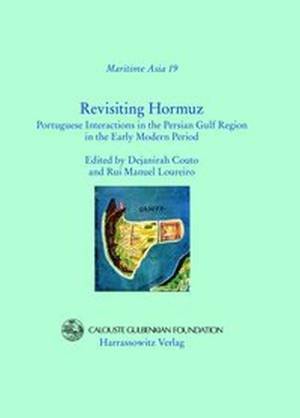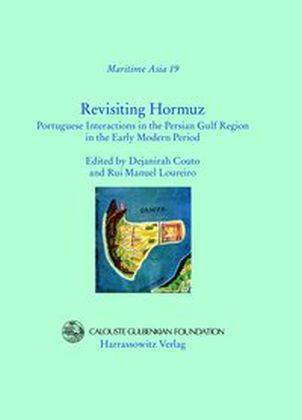
- Afhalen na 1 uur in een winkel met voorraad
- Gratis thuislevering in België vanaf € 30
- Ruim aanbod met 7 miljoen producten
- Afhalen na 1 uur in een winkel met voorraad
- Gratis thuislevering in België vanaf € 30
- Ruim aanbod met 7 miljoen producten
Zoeken
Revisiting Hormuz
Portuguese Interactions in the Persian Gulf Region in the Early Modern Period
€ 57,45
+ 114 punten
Omschrijving
The volume "Revisiting Hormuz", gathers the proceedings of a Conference organized in March 2007 by the Calouste Gulbenkian Foundation, through its Centre Culturel Calouste Gulbenkian in Paris. The year 2007, exactly five centuries after the Portuguese first landed on the island of Hormuz, seemed to the scientific coordinators Rui Manuel Loureiro and Dejanirah Couto a very appropriate moment to bring together a large group of specialists that could establish the current state of the art in field of the history of Portuguese interactions with Hormuz and the Persian Gulf region. The chronological borders of the Conference, quite naturally, were extended to the early decades of the 17th century, to include the final departure of the Portuguese from Hormuz in 1622 and subsequent developments. Although the focus of the Paris Conference was supposed to be history, in any of its political, social, economic or cultural variants, the complex nature of Portuguese interactions with Hormuz and Safavid Persia, that spanned for more than a century, and also the existence of an important monumental heritage of Portuguese origin in the Gulf area, made the presence of art historians, architects, and archaeologists desirable.
Specificaties
Betrokkenen
- Uitgeverij:
Inhoud
- Aantal bladzijden:
- 316
- Taal:
- Engels, Frans
- Reeks:
- Reeksnummer:
- nr. 19
Eigenschappen
- Productcode (EAN):
- 9783447057318
- Verschijningsdatum:
- 1/04/2008
- Uitvoering:
- Hardcover
- Formaat:
- Papier over dekens
- Afmetingen:
- 175 mm x 244 mm
- Gewicht:
- 725 g

Alleen bij Standaard Boekhandel
+ 114 punten op je klantenkaart van Standaard Boekhandel
Beoordelingen
We publiceren alleen reviews die voldoen aan de voorwaarden voor reviews. Bekijk onze voorwaarden voor reviews.










